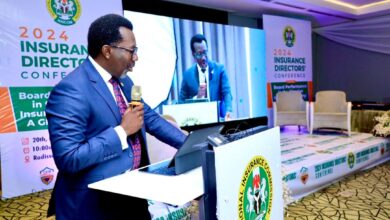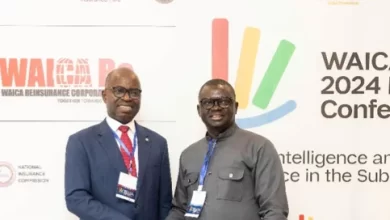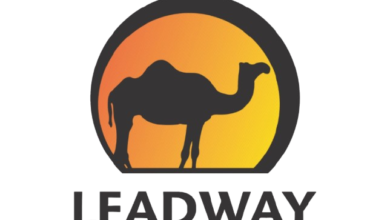IFRS17 adoption continuing to stress African insurance markets, as new standards emerge on sustainability for capital markets worldwide

By Liz Booth of Africa Ahead
IRFS17, the accounting standard for insurers that has been implemented worldwide this year is still proving a thorn in the side of many insurers across Africa.
The challenges are being identified as the International Sustainability Standards Board (ISSB) announced new sustainability standards for the capital markets worldwide.
On IFRS17, the International Financial Reporting Standards board (IFRS) said, “IFRS17 requires a company to measure insurance contracts using updated estimates and assumptions that reflect the timing of cash flows and any uncertainty relating to insurance contracts. This requirement will provide transparent reporting about a company’s financial position and risk.
“IFRS17 is effective from 1 January 2021. The board will support the implementation of IFRS17 over the next three-and-a-half years.”
That is the official position but what is happening on the ground. Regulators across Africa are moving towards implementation for their markets as soon as possible. One of the much-touted issues is that because IFS17 was delayed a couple of times because of the Covid-19 pandemic, some insurers had (wrongly, as it turns out) assumed that IFRS17 would be delayed again or that it would not be made compulsory in their markets.
The result has been a mismatch of impending regulations, implementation by insurers and unknown consequences for those who have failed to comply.
In Nigeria, the regulator Nigeria Insurance Commission (Naicom) told insurers in April of this year that the transition date was the end of June and that they needed to be prepared.
So far, says the regulator, it has taken a “carrot” approach, encouraging the market to comply, but it was also prepared to wield the “stick” if required.
Speaking to CEOs, actuaries and risk managers of leading Nigerian insurance companies at a breakfast meeting in Lagos recently, hosted by Oracle, Capesso and Africa Ahead, Barineka Thompson, director of supervision at Naicom, reiterated that approach.
He told the audience that it was the role of the Financial Reporting Council (FRC) to ensure such regulations are equally adopted across the market. “Our rule is not really to take over the role of the FRC but it is to complement their efforts and as far as possible to give direction to the industry and assist the market,” he said.
“Nevertheless, we are interested in what happens, so we are monitoring the adoption of these standards across the market. We have required insurers to create a roadmap towards implementation and IFRS17 compliance.
“Of course, we will monitor compliance and carry out enforcement. We will continue to sensitise key stakeholders and have meetings from time to time.”
Naicom has also issued guidance notes on IFRS17 to give direction to the industry and encourage harmonised views in the application of the standard. Since 2020, there has been a regulator-organised working group, including the four big consultants, the Nigerian Insurance Association’s (NIA) actuarial working group and the Nigerian Actuarial Society (NAS), which has developed the guidance note.
“One of the key benefits of IFRS17 is that it will create a comparable market and greater transparency for the market,” he added.
As a global issue, Mr Thompson said other jurisdictions across the region are grappling with the same issues.
“We are aware that most west Africans are looking to learn from us through the implementation process,” said. “We have already done exercises with those markets, including Ghana.”
But he stressed to the market that IFRS17 is no longer new and insurers should be working on adoption.
“By the end of the year, in Nigeria we are supposed to have published our 2022 IFRS17 statement. If you look at the roadmap with its five pillars, we are supposed to be on the fourth pillar by now. Most of us are already on the third pillar,” Mr Thompson reported.
“As Naicom, we continue to have engagements and we are monitoring technical training that the industry is giving to stakeholders, including actuarial, IT and accounting staff.
We are monitoring which systems are being deployed and what modelling structure firms are putting together.”
It is critical, he said, that there is a system in place to collect and collate information in a suitable manner for it to be interpreted under the new regulations.
“We are trying to use persuasion, carrot and stick, to drive compliance. We do not intend to penalise anyone for now. June is the deadline to file the 2022 report,” he said, urging all operators to comply with that deadline.
“So far,” he reported, “in the market all operators have submitted their gap analysis, which was pillar one of our roadmap, and also submitted financial and operational impact assessments and we have been reviewing that.
“From there we all know where the gaps are and what needs to be done to fill those gaps,” he stressed.
Laura Llewellyn-Jones, a member of the council of the NAS, stressed NAS has been very supportive of the IFRS17 programme in Nigeria. “We believe it is very important the Nigeria is compliant with this standard and that Nigeria is aligned with the rest of the world on this global standard,” she said.
“We understand that IFRS17 is very actuarial heavy and we have been working with students to help develop the actuarial community in Nigeria.”
However, beyond the physical manpower and the cash to afford systems, delegates had a number of other concerns.
First and foremost of those was the tax implications and cash flow under IFRS17. They warned that many questions have yet to be answered by the tax authorities, with implications for the profitability of insurers going forward.
Mr Thompson said that in terms of tax and IFRS17, the work is underway now between Naicom and NIA to ensure there will be an engagement with the tax authorities. “Right now, I am not sure if they are aware of the changes and, even if they are aware, I am not sure they understand the significance of the changing nature of insurance accounting reporting,” he admitted.
“We need to do some training of their officials. They need to recognise that for us as insurers, premium income will no longer be seen going forward.”
This is not limited to the tax authorities, as Mr Thompson explained. “It also means that our shareholders and all those who were familiar with gross written premium and net premium and profit and loss have to recognise that they will no longer be seeing those figures.
“The mindset has to change.”
Back to the tax authorities. Mr Thompson said “The next thing will be changing the tax laws as they affect the insurance companies. That process needs to happen.”
Delegates asked what the timeline might be on tax changes. Mr Thompson stressed that Naicom was working hard with the industry to address all its concerns. The good news, he said, was that the number of questions being put forward showed that the industry was taking the issue of implementation seriously.
The less good news was that the regulator was sometimes under attack for not responding quickly enough. The tax question was one of those issues, he said, adding “the regulator is working hard at government level to have changes in the rules, as well as with the market to address issues as quickly as possible. And we hope to have news within the next month.”
He pointed to Kenya and South Africa, where financial regulation was generally addressed quickly and the regulator was working hard to ensure the same happened in Nigeria.
Meanwhile, the ISSB issued its inaugural standards — IFRS S1 and IFRS S2 — ushering in what it calls “a new era of sustainability-related disclosures in capital markets worldwide”. ISSB claimed the standards will help to improve trust and confidence in company disclosures about sustainability to inform investment decisions.
And for the first time, the standards create a common language for disclosing the effect of climate-related risks and opportunities on a company’s prospects.
IFRS S1 provides a set of disclosure requirements designed to enable companies to communicate to investors about the sustainability-related risks and opportunities they face over the short, medium and long term. IFRS S2 sets out specific climate-related disclosures and is designed to be used with IFRS S1.
Both fully incorporate the recommendations of the Task Force on Climate-related Financial Disclosures (TCFD).
The ISSB Standards are designed to ensure that companies provide sustainability-related information alongside financial statements — in the same reporting package. The Standards have been developed to be used in conjunction with any accounting requirements. They are also built on the concepts that underpin the IFRS Accounting Standards, which are required by more than 140 jurisdictions. The ISSB Standards are suitable for application around the world, creating a truly global baseline.
Now that IFRS S1 and IFRS S2 are issued, the ISSB will work with jurisdictions and companies to support adoption. The first steps will be creating a Transition Implementation Group to support companies that apply the Standards and launching capacity-building initiatives to support effective implementation.
The ISSB will also continue to work with jurisdictions wishing to require incremental disclosures beyond the global baseline and with GRI to support efficient and effective reporting when the ISSB Standards are applied in combination with other reporting standards.
Erkki Liikanen, chair of the IFRS Foundation Trustees, said: “The global baseline approach, supported by the G20 and others, will provide investors with globally comparable sustainability-related disclosures that have the potential to move market prices, without constraining jurisdictions from requiring additional disclosures. This will help companies and investors by tackling duplicative reporting.”
Mary Schapiro, head of the Task Force on Climate-related Financial Disclosures (TCFD) Secretariat and vice chair for global public policy at Bloomberg, added: “The global economy needs common reporting standards to reduce fragmentation and drive comparability in climate-related financial data.
“Built on the foundation of the TCFD framework, the ISSB Standards provide a global baseline for companies to disclose decision-useful, climate-related financial information — information that is critical for creating more transparent markets, helping achieve a smooth low-carbon transition, and building a more resilient and sustainable global economy.”





